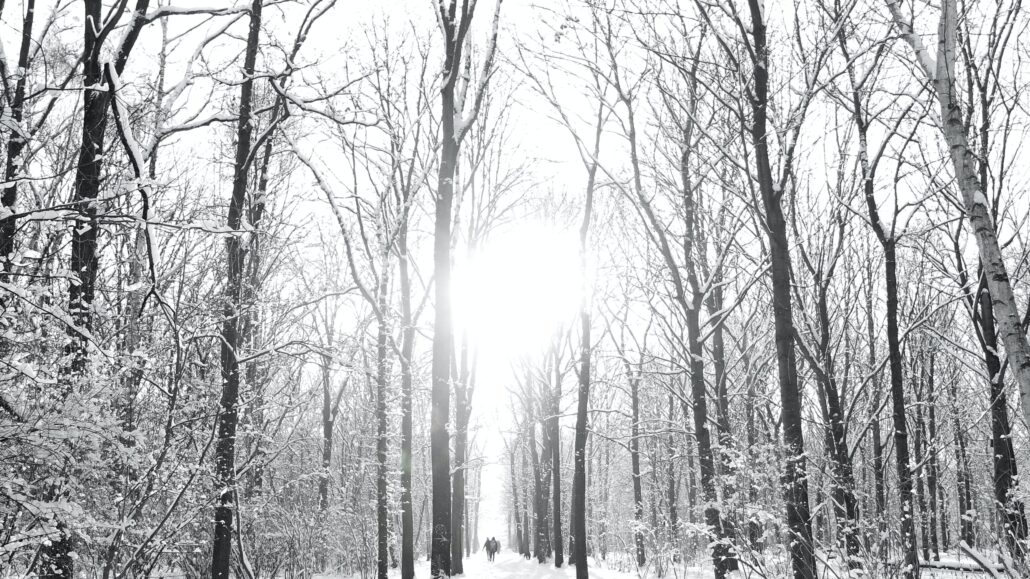Over the years, I’ve had a continuing love affair with trees. While growing up in the heartland of America, I discovered early in life that there was something about trees that evoked a deep sense of reverence. Their ability to praise God simply by following the purpose for which they were created awakened in me seeds of contemplation, which I believe are planted in every heart before we are born. “Before I formed you in the womb, I knew you, before you were born, I dedicated you” (Jer 1:5a).
I recall spending countless hours lying in the grass, captivated by the sight of mighty oak trees, their leaves rustling in the wind, bowing in solemn adoration. The scene was enough to send my imagination soaring, often reaching a crescendo of praise audible only to God. Fir trees were transformed into cathedral spires, piercing the heavens even as they shaded earth from the heat of the day. Standing in the shadow of nature’s houses of worship, my whole being seemed to be clothed in a velvety silence that made me feel warm all over. The taller the trees, the greater the security I found in my smallness, as I delighted in knowing that I was part of a world so large that only God could wrap his arms around it.
Decades later, trees continue to speak to me, serving as gateways to mystery, daring me to describe the indescribable bounty of God’s love.As I became increasingly aware of humanity’s deepest longing—which only God can satisfy—the hunger that at an earlier age was satisfied by gazing upward was directed inward. Gradually the words of Jesus took hold.
“But when you pray, go to your inner room, close the door, and pray to your Father in secret. And your Father who sees in secret will repay you” (Mt 6:6).
In retrospect, those early years of tree-gazing have accompanied me into adulthood as an apt metaphor for the seasons of prayer. Much in the same way trees change with the seasons of the year, so our prayer life changes as we pass through the deepening stages of prayer.
Perhaps no one understood this better than St. Francis of Assisi. He roamed the hills of Assisi praising God and singing love songs to Lady Poverty. He fell in love with the beauty of nature, but that was only the beginning. His search for God eventually led him to enter the caves of Umbria, where, in darkness, he confronted his inner demons, surrendered his life to God, and discovered truth.
When he emerged, Francis was changed, not because of any one encounter, not even because he bore the wounds of the Savior later in life. The once youthful and flamboyant troubadour was changed because he emerged from humanity’s self-imposed prison, looked around, and saw God everywhere and in everything.
He related to all of creation as his equal, addressing the earth and sky as brother and sister. When he looked around, he saw that every blade of grass, fish and fowl, mountain and valley, sun and moon, all proclaimed the glory of God, and Francis became God’s troubadour. Unable to contain his joy, he invited all the world to join the chorus.








